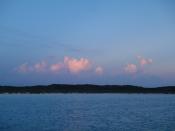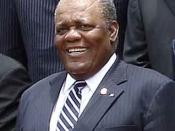History of The Bahamas.
In 1492, Christopher Columbus made his first landfall in the Western Hemisphere in The Bahamas.
The 1907 Catholic Encyclopedia wrote, "Historically the islands are of interest, because one of them San Salvador was the first land of the New World discovered by Columbus, 12 October, 1492. The Spanish never made a permanent settlement in the Bahamas, but shortly after the discovery they carried off many aborigines to the mines of San Domingo, and ere long the whole population, never perhaps very large, seems to have disappeared. The statement made in some of the recent guide books, that 40,000 souls were supposed to have been carried to the mines of Hispaniola by the Spaniards, is evidently overdrawn. Had the Bahamas ever been so thickly populated, there would remain the evidence of ruins of buildings or of soil cultivation. There are few if any fruit trees whose introduction cannot be traced, and there are no food-animals on the islands.
Whatever population there was, must, therefore, have subsisted on fish, corn, yams, and on a very few small wild fruits. There is nothing to warrant the supposition that the Bahamas ever had more than a very sparse aboriginal population. So little is known of the original inhabitants that they cannot be definitely classified. They may have been of Carib stock or of the race that inhabited the adjoining mainland of Florida. The brief description which Columbus gives of them, and the formation of the few skulls discovered, seem to favour the theory that they were either one with the aborigines of Florida, or a mixture of the latter with the Caribs of the West Indies. The fact that they were very mild-mannered, and not cannibalistic, favours the opinion that they were kin to the Seminoles of Florida. Excepting a...


